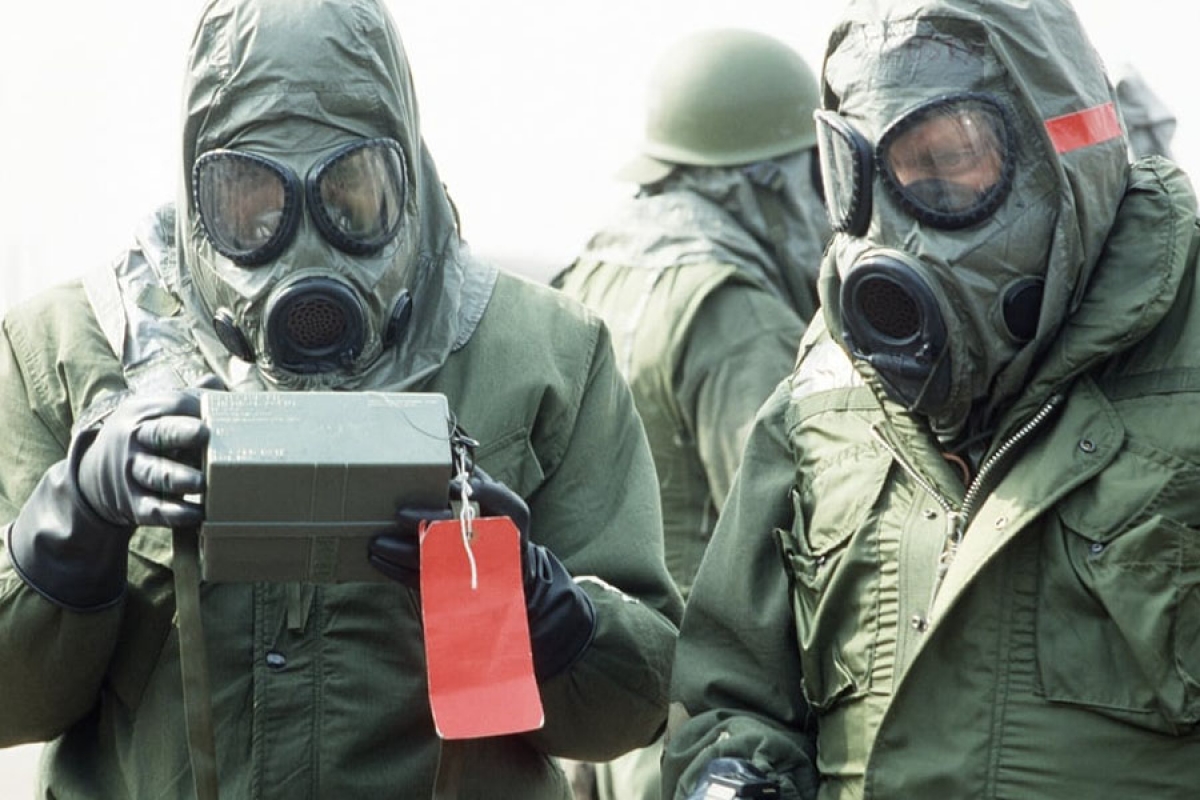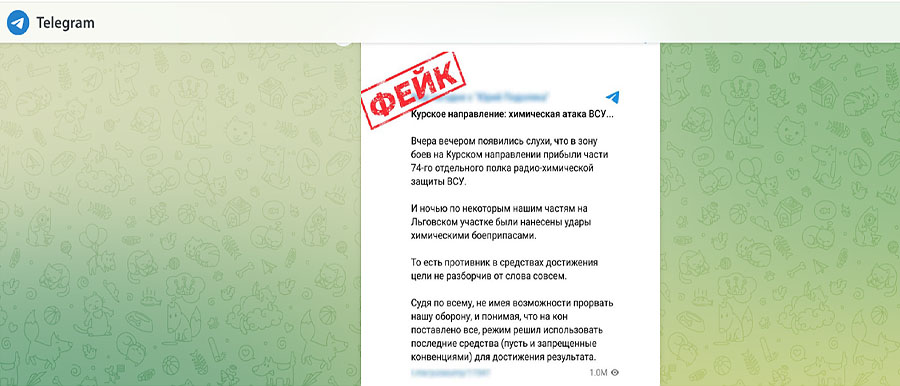Since the very beginning of the war in Ukraine, claims have been voiced by the opposing Russian side, alleging that the Ukrainian army does not hesitate to use chemical weapons and so-called dirty bombs.

Since the very beginning of the war in Ukraine, claims have been voiced by the opposing Russian side, alleging that the Ukrainian army does not hesitate to use chemical weapons and so-called dirty bombs.

The most recent such claims emerged in connection with developments in the Kursk region, bringing to the surface familiar Russian propaganda narratives alleging that, due to a lack of capacity to advance further, the Ukrainian army was forced to resort to the use of chemical weapons in an attempt to break through Russian defensive positions. The use of chemical weapons would also constitute a direct violation of international law—specifically, the Chemical Weapons Convention (CWC), which entered into force on April 27, 1997, and to which Ukraine is a signatory.
It is worth noting that Serbia also acceded to this Convention on April 20, 2000. The primary objective of the Convention, as stated on the official website of the Serbian Customs Administration, is to eliminate an entire category of weapons of mass destruction – chemical weapons, and, as formulated on the official website of the European Union, to completely exclude the possibility of the use of chemical weapons for the benefit of all mankind.
These narratives first appeared on the social network Telegram, which Demostat recently identified in its analysis as a highly effective tool of Russian propaganda.

Photo: The disputed post. Source: Telegram: https://t.me/CenterCounteringDisinformation/11438
However, the claims do not go beyond this initial post, as no verified evidence has surfaced—neither on the Telegram channel nor elsewhere—that would substantiate such serious accusations.
Given the gravity of the allegations, which imply a violation of the Convention and, by extension, international law, only the organization responsible for monitoring the implementation and compliance with the Convention’s provisions can offer authoritative answers as to whether such an incident has indeed occurred or whether it is a case of disinformation and propaganda in the context of war. That organization is the Organisation for the Prohibition of Chemical Weapons (OPCW).
In this regard, the OPCW has issued regular official statements in which it emphasizes that it has been closely monitoring the situation since the beginning of the war. Furthermore, it stated that the information provided to date, together with information otherwise available to the Organisation, remains insufficiently substantiated.
It is also important to highlight that the complete collection of official correspondence between member states of the Convention regarding such allegations is publicly available on the OPCW website and is regularly updated. In this way, everyone has access to the documentation.
Claims of this nature are by no means new—they have recurred since the onset of the war in Ukraine. For instance, on August 27 of this year, the official website of the Ministry of Defence of the Russian Federation (Russian: ???????????? ??????? ?????????? ?????????; ???) published a statement asserting that the Ministry had from the outset analyzed the activities of Ukraine and the United States in relation to violations of international documents prohibiting the use of chemical and biological weapons, and that it had already discovered evidence of the large-scale collection and transportation of biomaterials.
On the Ukrainian side, the Centre for Countering Disinformation (Ukrainian: ????? ???????? ?????????????), established by the National Security and Defense Council of Ukraine (Ukrainian: ???? ???????????? ??????? ? ??????? ???????), responded via its official Telegram channel—where it monitors and debunks disinformation narratives like this one—stating that the spread of such disinformation is part of the Kremlin’s strategy to influence public perception of events in the Kursk region.
From the standpoint of psychological warfare, this strategy is both logical and effective—especially considering the current stage of the conflict, in which the Ukrainian army has advanced onto Russian territory, making it imperative for the Kremlin to divert public attention. As Peter Dickinson writes in his article for the Atlantic Council, by bringing the war to Russian soil, Ukraine has struck a powerful blow to enemy morale; Ukrainian advances in the Kursk region are spreading panic throughout the surrounding area and undermining Putin’s efforts to prevent the invasion of Ukraine from disrupting the daily lives of ordinary Russians.
In all societies there are issues that are rather being skipped. Certain...
The neoliberal path, started in 2001, has led to especially bad results in Serbi...
For centuries, the region was subsumed within the Ottoman and Hungarian Empires,...
"Serbia has returned to the systemic and anti-systemic position of the political...
In reality, Serbia is closer than ever to NATO. In the course of the last five y...